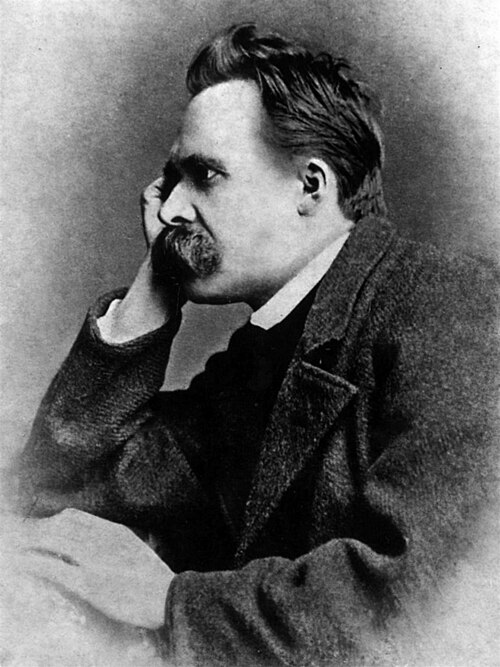Narcissismnoun
Excessive love of oneself.
Narcissismnoun
Sexual desire for one's own body.
Narcissismnoun
An exceptional interest in and admiration for oneself.
Narcissismnoun
an exceptional interest in and admiration for yourself
Narcissism
Narcissism is the pursuit of gratification from vanity or egotistic admiration of one's idealised self-image and attributes. The term originated from Greek mythology, where a young man named Narcissus fell in love with his own image reflected in a pool of water.
Nihilismnoun
(philosophy) A philosophical doctrine grounded on the negation of one or more meaningful aspects of life.
Nihilismnoun
(ethics) The rejection of inherent or objective moral principles.
Nihilismnoun
(politics) The rejection of non-rationalized or non-proven assertions in the social and political spheres of society.
Nihilismnoun
A Russian movement of the 1860s that rejected all authority and promoted the use of violence for political change.
Nihilismnoun
The understanding that all endeavors are devoid of objective meaning.
Nihilismnoun
The refusal of belief, that belief itself is untenable.
Nihilismnoun
Nothingness; nihility.
Nihilismnoun
The doctrine that nothing can be known; scepticism as to all knowledge and all reality.
Nihilismnoun
The theories and practices of the Nihilists.
Nihilismnoun
a revolutionary doctrine that advocates destruction of the social system for its own sake
Nihilismnoun
the delusion that things (or everything, including the self) do not exist; a sense that everything is unreal
Nihilismnoun
complete denial of all established authority and institutions
Nihilism
Nihilism (; from Latin nihil 'nothing') is a philosophy, or family of views within philosophy, expressing negation (i.e., denial of) towards general aspects of life that are widely accepted within humanity as objectively real, such as knowledge, existence, and the meaning of life. Different nihilist positions hold variously that human values are baseless, that life is meaningless, that knowledge is impossible, or that some set of entities do not exist, are meaningless, or pointless.The study of nihilism may regard it as merely a label that has been applied to various separate philosophies, or as a distinct historical concept arising out of nominalism, skepticism, and philosophical pessimism, as well as possibly out of Christianity itself.




